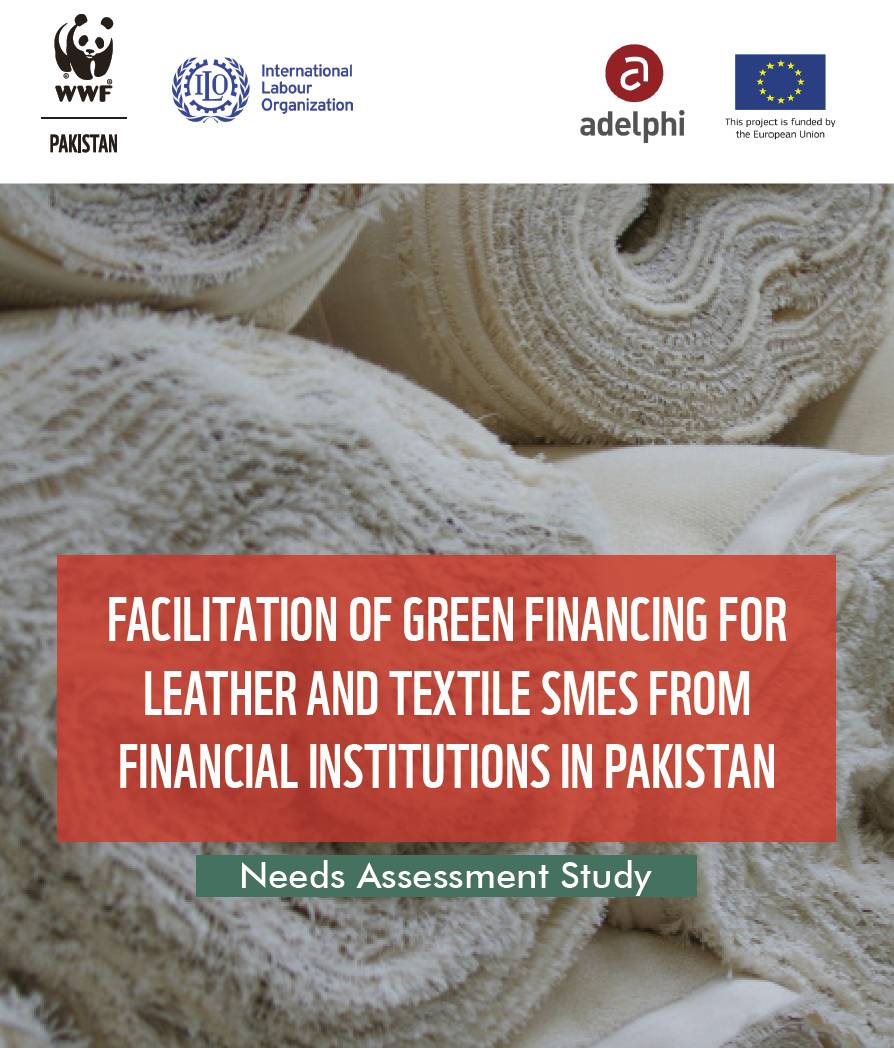
WWF-Pakistan’s International Labour and Environmental Standards Application in Pakistan’s SMEs (ILES) project has set out to improve water and resource management practices and energy consumption in the textile and leather sectors, especially by resource-intensive SMEs, through multi-stakeholder approaches. The means for achieving these goals lies within the establishment of partnerships between various stakeholder groups, including SMEs, public authorities, intermediaries working with SMEs, financial institutions, and multi-national corporations (MNCs).
Within the ILES project, the development of a green financing instrument (Green Credit Guidelines) for the textile and leather sectors – with the endorsement and use by regulators – would extend capital to SMEs for green investments and build the capacity of key private and public sector actors to implement and monitor progress with meeting green financing objectives. Throughout this needs assessment study, “green investments” by textile and leather SMEs refer to investments in Sustainable Consumption and Production (SCP), including: (a) water management, (b) energy conservation, and (c) wastewater treatment and chemical use reductions.
In order to identify barriers and opportunities for the future development of sector-specific Green Credit Guidelines (GCG) within the ILES project, this needs assessment study aims to:
-
Gauge the degree of financers’ implementation and/or interest in green financing, particularly in line with the State Bank of Pakistan’s (SBP) cross-sector Green Banking Guidelines (GBG) that were published in 2017;
-
Gain a better understanding of the SME lending portfolios of Pakistani banks, especially relating to textile/leather SMEs; and,
-
Identify current activities or future interest in financing green investments in Sustainable Consumption and Production (SCP) by SMEs within the target sectors.


